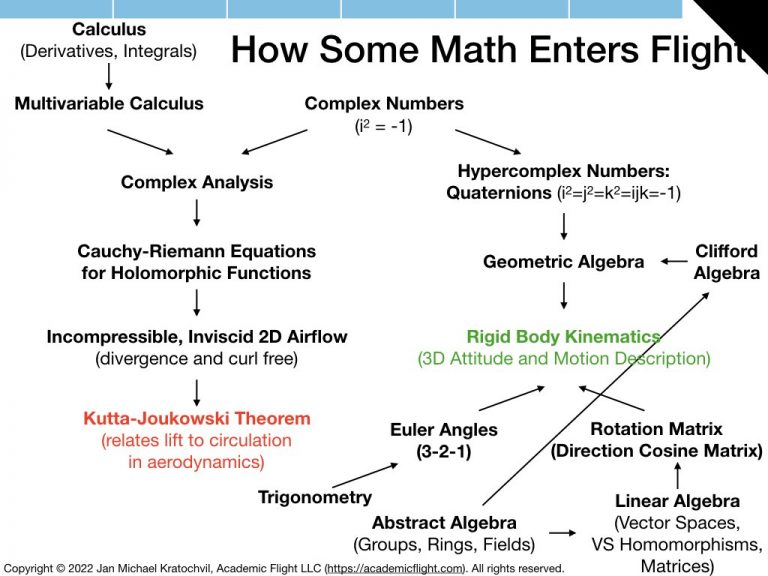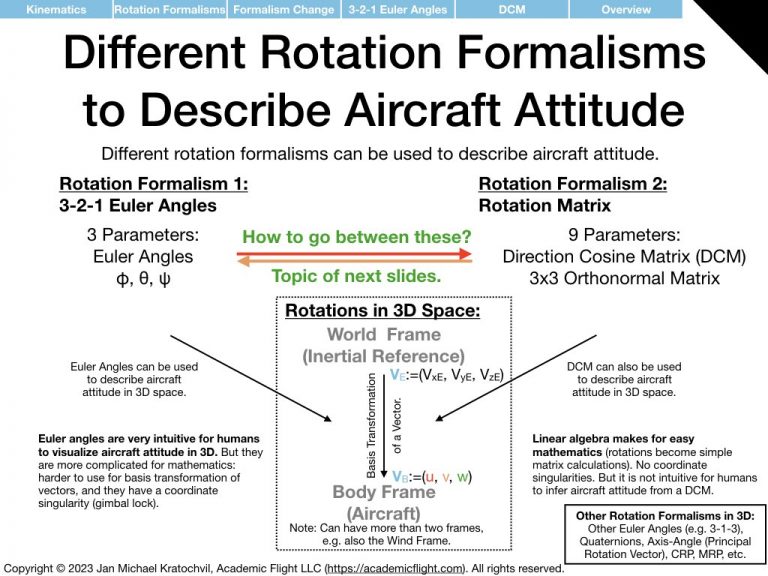Mathematics in Aerospace Engineering
Academic Flight’s mathematics articles, explaining the fundamentals of mathematics in aerospace engineering and flight test engineering.
Mathematics Primers
Introductory mathematics articles, varying in degree of detail and mathematical rigor. The graphic on the right illustrates how some fields of mathematics enter aerospace engineering.
- Linear Algebra Primer
- Multivariable Differential and Integral Calculus Primer
- Complex Analysis Primer (theory of functions of a complex variable)

Mathematical Aircraft Attitude Descriptions
Mathematics in aerospace engineering is used to describe aircraft attitude. This is far more complicated that describing position, and there are many different mathematical ways to describe aircraft attitude. There is no one best formalism, because each has some advantages and disadvantages. Criteria for use include aspects such as intuitiveness for humans and mathematical properties (e.g. coordinate singularities, numerical stability, computational speed, etc.).
Aircraft attitude is generally described as a spatial rotation from a default reference attitude. By convention, this reference attitude is taken to be the aircraft pointing north with wings level and the nose level on the horizon. Any other attitude is then described as a rotation from this reference attitude (even though the aircraft itself did not actually perform this rotation physically, as it flew). Hence, aircraft attitude description is closely linked to mathematical rotation formalisms in three dimensions.

